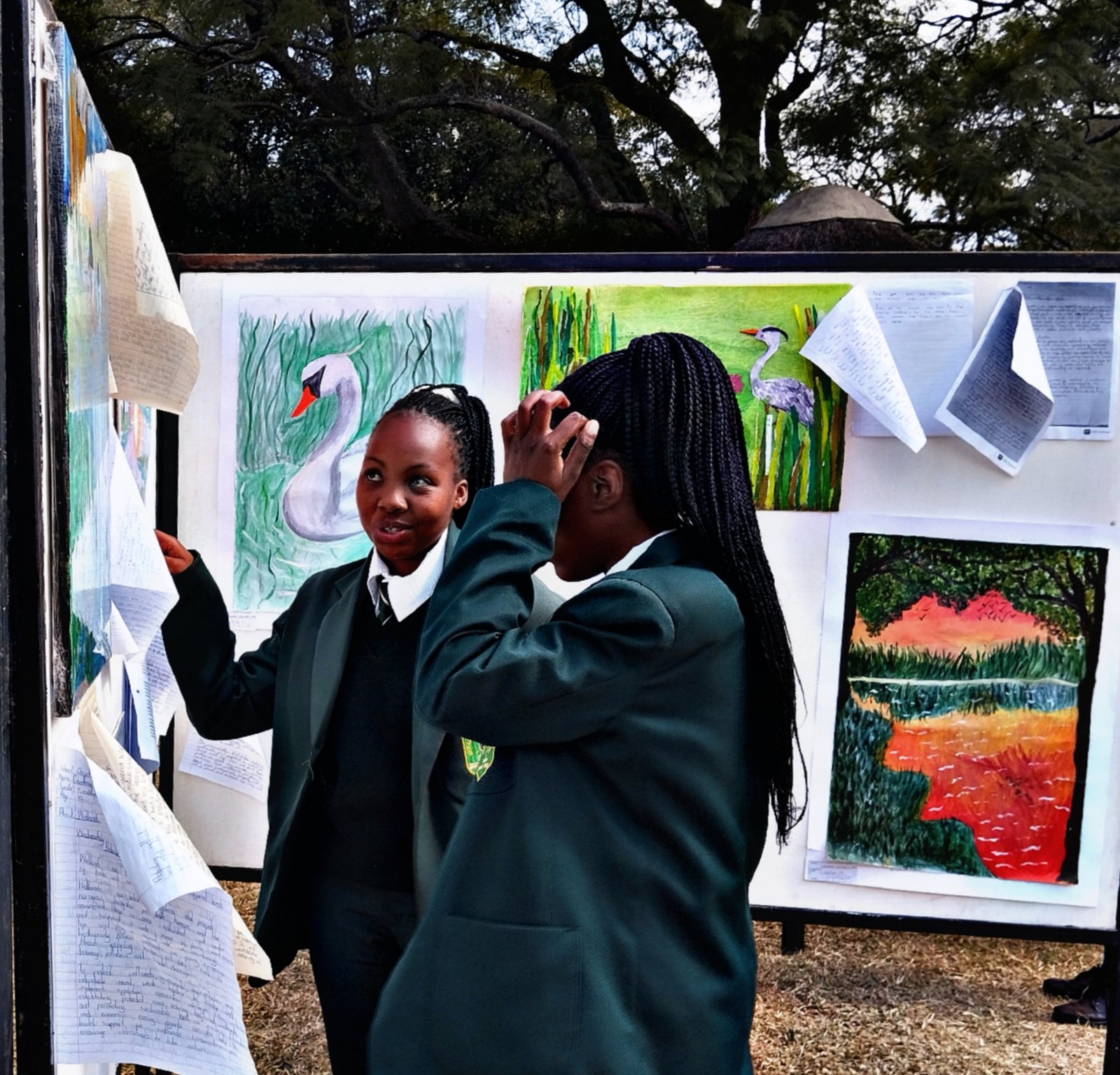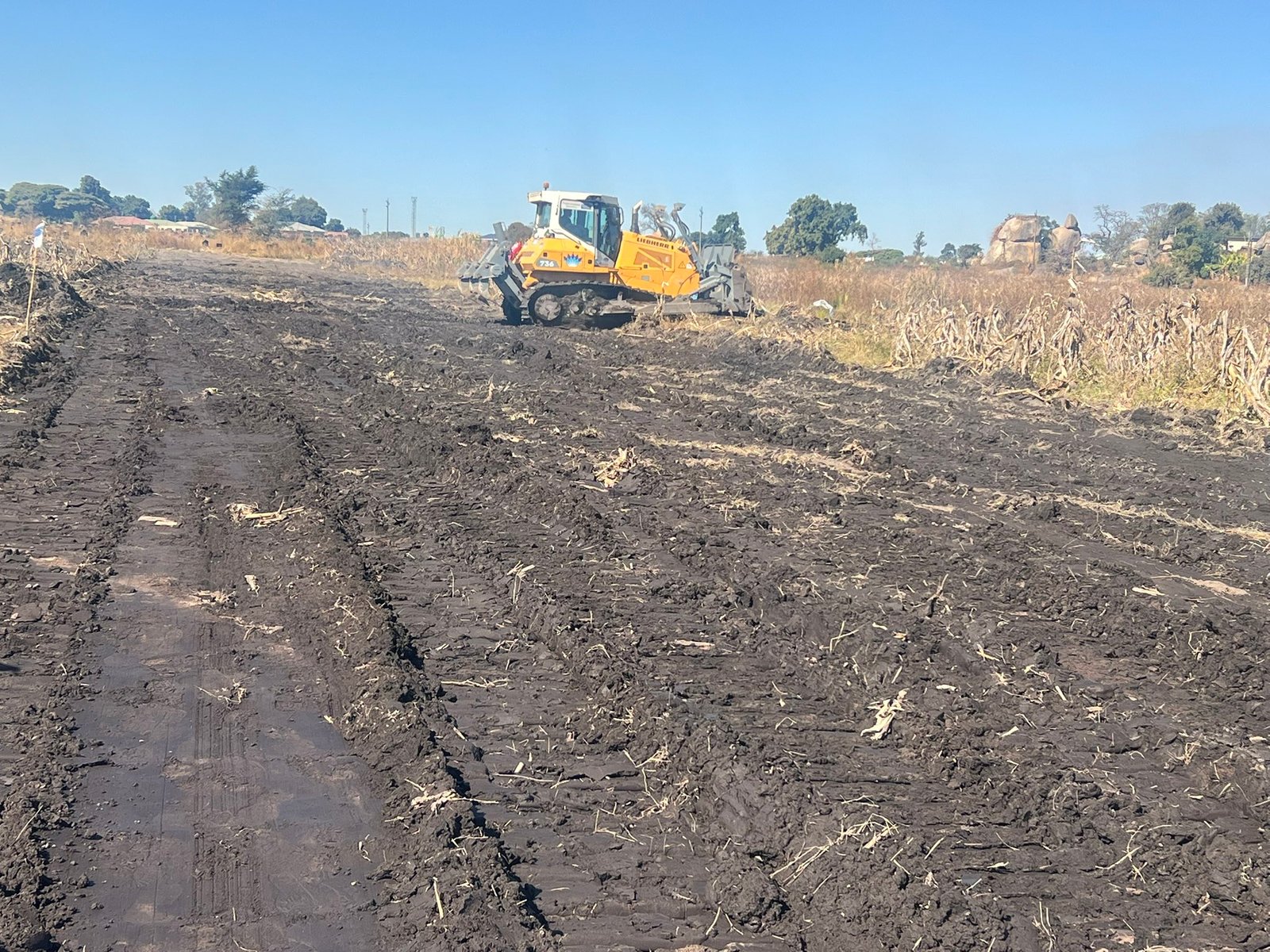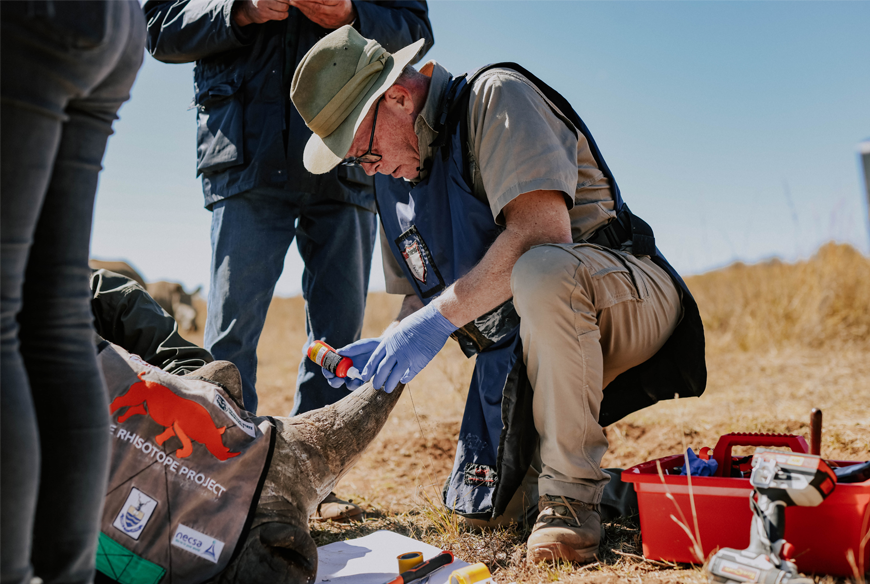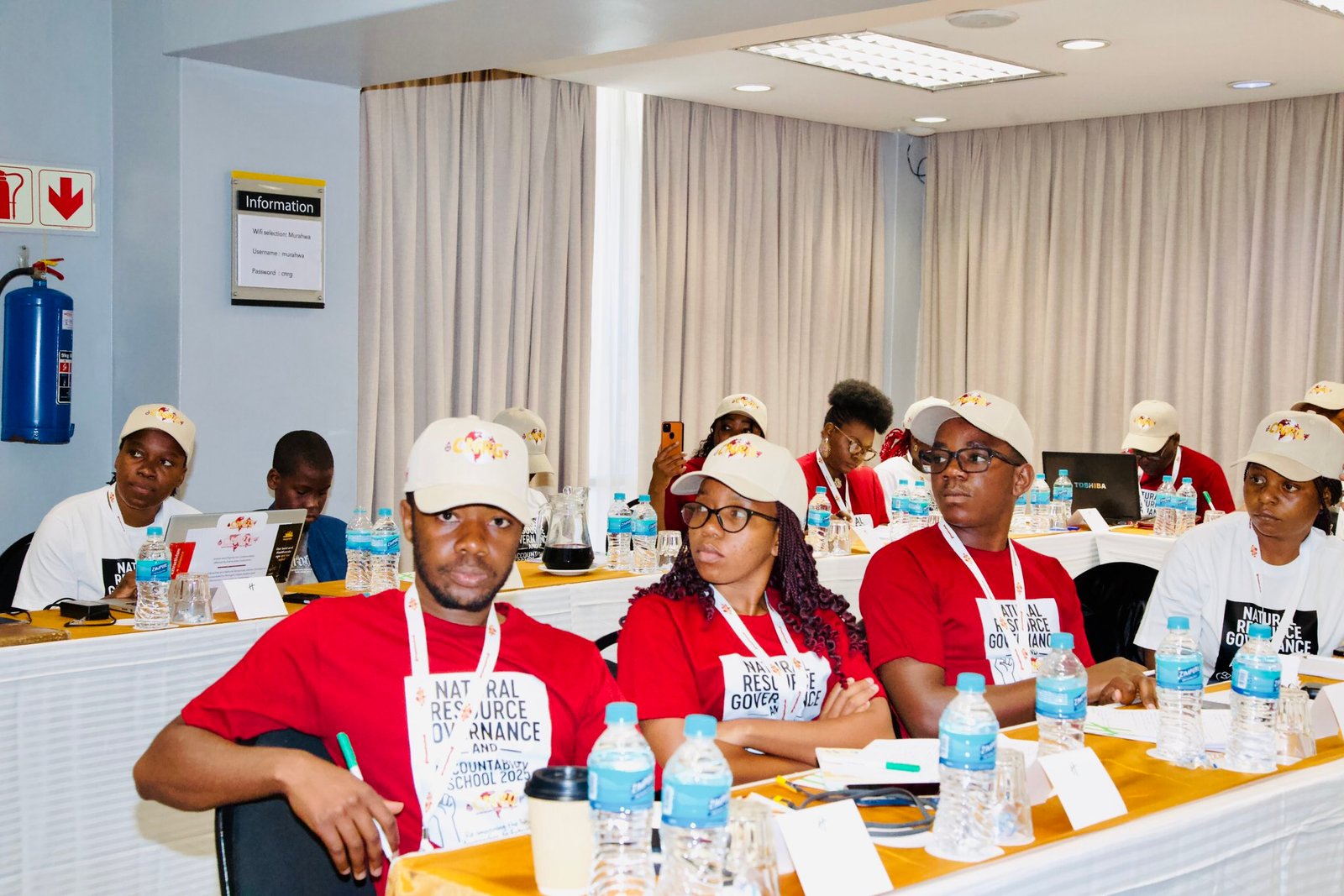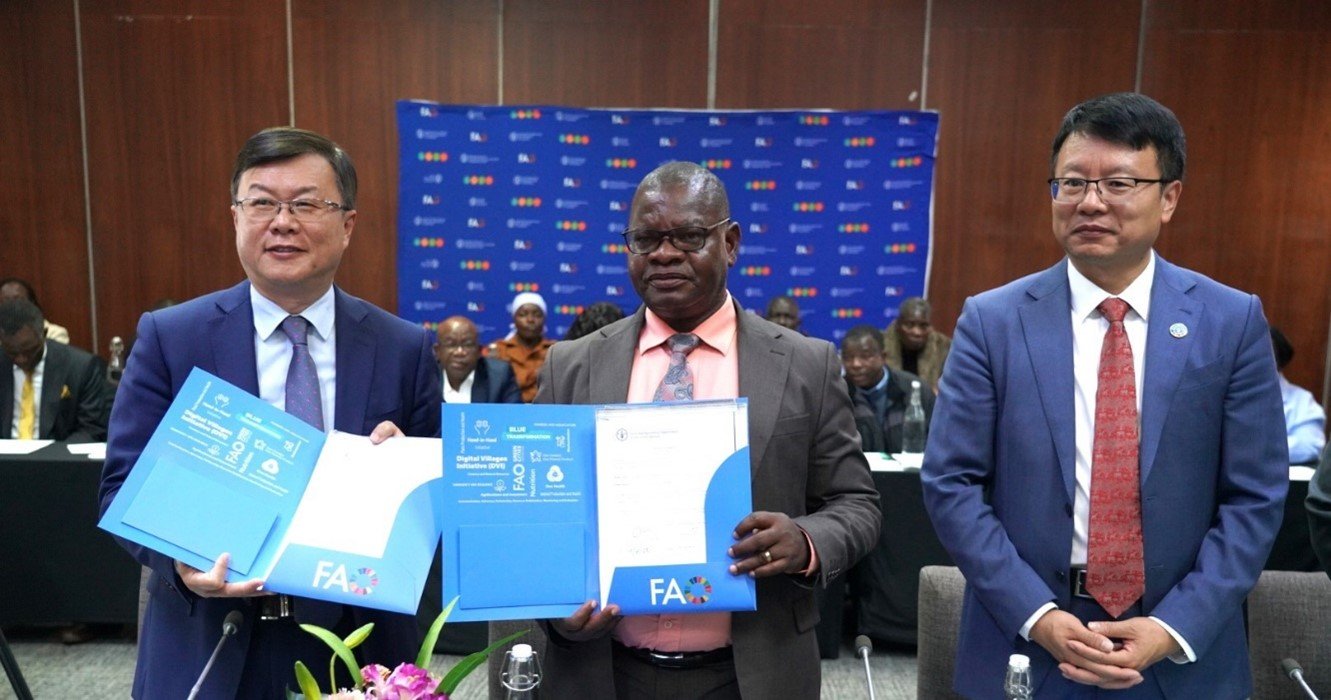BirdLife Zimbabwe is ramping up efforts to stem the rapid degradation of the country’s vital wetlands, threatened by urban sprawl, unsustainable development, as the nation prepares to host a major global conservation summit.
The conservation organisation is leading the push with government, communities, local authorities, and schools to raise awareness and implement practical solutions aimed at preserving these critical ecosystems, which provide clean water, regulate climate, and support biodiversity.
With support from the Netherlands Embassy, the organisation recently hosted a nationwide wetlands awareness competition price giving targeting school children, as part of a broader push to involve all levels of society in preserving these crucial ecosystems ahead of Zimbabwe’s hosting of the Ramsar COP15 summit.
The event was launched in February 2025 during the World Wetlands Day at Lake Chivero. The aim of the competition was to engage school children in wetland issues and encourage them to express their understanding and creativity on the topic. Using essays, art, and music as accessible and engaging tools, the competition helped children better understand and connect with wetland conservation.This creative strategy proved highly effective in reaching a broad audience, engaging schools across the country including distant regions like Victoria Falls and Hurungwe.
BirdLife Zimbabwe’s wetlands awareness competition comes at a critical moment. The country’s wetlands, which help regulate climate, purify water and support diverse species, are being degraded at an alarming rate.
In Zimbabwe, the Environmental Management Agency (EMA) has reported that over 60% of headwater wetlands are degraded, with some completely converted to built-up areas due to unsustainable human activities. Specifically, in Harare, construction has impacted 3,717 hectares (9,185 acres) of wetlands, representing about 16% of the city’s wetlands.
“BirdLife Zimbabwe is certainly leading the effort locally in terms of wetland preservation, and we truly appreciate their approach. Today we are engaging with school children, and yesterday (Thursday) we were working with members of Parliament. This shows that they are implementing both top-down and bottom-up strategies, involving all levels of society.”Harry Davies, policy officer, Climate change, Netherlands embassy.
“Sustainable water management is a priority across the world, and in Harare, which is a wetland city, we cannot separate the conservation of wetlands from sustainable water management. Wetlands play an absolutely critical role in the local hydrological cycle and are under immense pressure from rapid development, mining, unsustainable agriculture, and other challenges,” he said.
The event, aligned with the Ramsar COP15 theme “Protecting Wetlands for Our Common Future,” The initiative was designed to instill a sense of environmental responsibility in the next generation, encouraging long-term stewardship of water sources and biodiversity.
“I believe working with school children is essential, not just to educate them about their role in society, but also about their place in the natural world. Children are powerful change agents, both at home and in their communities. They are often bolder and more creative than adults, and sometimes they can speak more clearly on important issues. That is why it is so important to give them the right information now, because one day they will be responsible for managing and protecting our local environment,” Davies added.
BirdLife Zimbabwe Chief Executive Officer (CEO) Julia Pierini underscored the importance of wetlands to the country’s water security and biodiversity, particularly as climate change accelerates their degradation.
Pierini noted that many of Zimbabwe’s wetlands are headwater wetlands, critical sources where rivers and streams originate.
“As a landlocked country, these wetlands are our primary water source, and with the changing climate, they are drying up. This makes it even more crucial to protect them,” she said.
Pierini also stressed the need to raise awareness among young people.
“It is critically important that schools and children learn the value of wetlands and their role in supporting biodiversity. This event is an opportunity for them to connect with nature and understand what real sustainable development means,” she said.
BirdLife Zimbabwe Education Officer Ronald Chirimuta says young people must be part of wetland conservation efforts.
“When we talk about wetland conservation, even if you look at the theme for Ramsar COP15, “Protecting Wetlands for Our Common Future”, our common future involves young people. From schoolchildren to the youth, we cannot exclude them as we work to manage these important ecosystems.”
He says early education is key to helping them understand the value of wetlands, so they can make informed decisions and push for stronger environmental laws in the future.
“It is crucial to help them understand the basics of what wetlands are, why they matter, and what we should be doing to manage them effectively. That way, when they eventually take up decision-making roles, they will already appreciate the importance of wetlands and will be able to advocate for stronger laws and better governance in wetland protection.”
The initiative also signals Zimbabwe’s broader ambitions as it prepares to preside over the Ramsar Convention for the next three years, an opportunity experts say should be used to drive stronger national and regional policies on water management and biodiversity conservation.
“I think COP15 is being framed by many people as a major moment at the end of a long journey. But actually, for Zimbabwe, the conference itself marks only the beginning. We will hold the presidency for three years, and during that time, it would be wonderful for Zimbabwe to significantly strengthen its wetland protection efforts in relation to water management, biodiversity, and climate action. It is also an opportunity to push for stronger regional action through Zimbabwe’s leadership.”
“It is also a really opportune moment to improve wetland conservation in Zimbabwe as the country prepares to host Ramsar COP15. This is an incredible opportunity not only to showcase Zimbabwe on the global stage but also to reinforce national efforts in wetland protection and to demonstrate leadership in nature-based solutions for water management and environmental preservation.”
Educators have called for the protection of these wetlands, noting that there have been unwarranted developments in these areas. Such developments, including construction and molding bricks, have negatively affected the wetlands.
“We need to conserve our wetlands because we are losing what nature has bestowed upon us. We are from Mabvuku, and we realize that people are building in wetland areas.While some individuals are engaged in small projects, like molding bricks with cement, they are still defiling the wetlands,” Mr Joseph Kubangaradza, HOD of Geography and patron of the Geo-Environment Club at Mabvuku High School.
Mr Kubangaradza called for collective action to protect wetlands for the benefit of current and future generations.
“Wetlands are pristine, we need them more than they need us because they purify our drinking water. As an urban community, we have destroyed a significant portion of them, yet we are among those who need fresh water the most. Therefore, all wetlands must be restored. We should restore those that we have defiled and preserve those that are still in their pristine state,” he said.
Zimbabwe is set to host the 15th Conference of the Parties (COP15) to the Ramsar Convention on Wetlands, with more than 1,000 delegates from 176 countries already confirmed to attend. From July 23 to 31, 2025, global attention will shift to the iconic Victoria Falls, where critical discussions will take place on protecting wetlands and advancing the international conservation agenda.
This landmark event marks Zimbabwe’s debut as host of the Ramsar COP, and only the second time this prestigious gathering will be held on African soil, following Uganda’s hosting of COP9 in 2005. Thereafter, Zimbabwe will be taking on the presidency of the Ramsar Convention for the next three years, and this presents a significant opportunity for the country to lead the way in wetland conservation both regionally and globally.
Holding the presidency allows Zimbabwe to influence key decisions, set conservation priorities, and showcase its commitment to protecting vital ecosystems.

